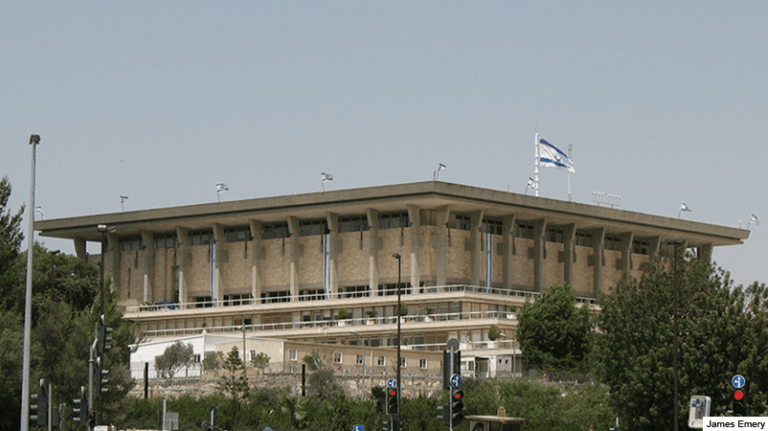
For a government that has coined its own term—“Hasbara,” the Hebrew word for “explanation”—for its international propaganda efforts, Israel never fails to amaze. The Netanyahu government just broke another Olympic record in Hasbara failure by adopting the Jewish Nation-State Law, the most damning evidence that the state of Israel is legalizing apartheid and brazenly displaying its internal discriminatory nature and practices. Beyond disparaging Israel’s international reputation, this new law has serious ramifications for all Palestinians, particularly those who are citizens of Israel.
What is the Jewish Nation-State Law?
The new controversial Basic Law, approved by the Israeli Knesset on July 19, 2018, by a vote of 62 to 55 with two abstentions, provides, among other things, for the following:1
- The State of Israel “is the historical homeland of the Jewish people in which the state of Israel was established.”
- “The state of Israel is the nation-state of the Jewish people, in which it actualizes its natural, religious, and historical right for self-determination.”
- “The actualization of the right of national self-determination in the state of Israel is unique to the Jewish people.”
- “[The] unified and complete [city of] Jerusalem is the capital of Israel.”
- “Hebrew is the language of the state” [of Israel].
- “The Arabic Language has a special status in the state; the regulation of the Arab [sic] language in state institutions or when facing them will be regulated by law.”
- “The state will be open to Jewish immigration and to the gathering of the exiled.”
- “The state will act to preserve the cultural, historical and religious legacy of the Jewish people among the Jewish diaspora.”
- “The state views Jewish settlement as a national value and will labor to encourage and promote its establishment and development.”
The Palestinian Reaction
Palestinian officials in Israel and occupied Palestine reacted forcefully and swiftly to the new law. They accused the Israeli government of relinquishing any claim to adhering to basic concepts of democracy and equality. In an op-ed published in Haaretz prior to the vote, Knesset Member Haneen Zoabi accused the Netanyahu government of refusal to accept Israel as “a state of all its citizens.” She argued that “A democracy does not exist without equality among its citizens,” concluding that “A selective democracy is not a democracy.”
Immediately after the Knesset vote, other Arab parliamentarians joined Zoabi in denouncing the legislation. Ayman Odeh declared, “Today, I will have to tell my children, along with all the children of Palestinian Arab towns … that the state has declared that it does not want us here,” Odeh said in a statement. “It has passed a law of Jewish supremacy and told us that we will always be second-class citizens.” Veteran legislator Ahmad Tibi stated that the vote represents the “end of democracy,” charging the government with demagogy. He tweeted that today is “The official beginning of fascism and apartheid. A black day (another black day).”
PLO Executive Committee Member Hanan Ashrawi also denounced the Knesset vote by emphasizing that the Jewish Nation-State Law “gives license to apartheid, discrimination, ethnic cleansing, and sectarianism at the expense of the Palestinian people.” She added that, “Such racist and prejudicial legislation is illegal by all standards of international law, democracy, humanity, justice, tolerance, and inclusion.” Saeb Erekat, head of the Palestinian Negotiations Affairs Department, added his own criticism that the “bill aims at legitimizing Israel’s institutional discrimination against its Arab Palestinian citizens, as well as it turns a ‘de-facto’ Apartheid regime into a ‘de-jure’ reality for all of historic Palestine.”
Hassan Jabareen, general director of Adalah, the Legal Center for Arab Minority Rights in Israel, stated that “The Jewish Nation-State Law features key elements of apartheid, which is not only immoral but also absolutely prohibited under international law.” “The new law,” he explained, “constitutionally enshrines the identity of Israel as the nation-state of the Jewish people only—despite the 1.5 million Palestinian citizens of the state and residents of East Jerusalem and the Golan Heights—and guarantees the exclusive ethnic-religious character of Israel as Jewish.”
Conscientious Jewish Reaction
Criticism of the legislation and its political objectives did not emerge only from Palestinian sources. Progressive Jewish groups in Israel and the diaspora also voiced their concerns about the discriminatory nature of the law as well as Israel’s image abroad, stating that the law, from their perspective, would undermine “the defining characteristics of a modern democracy” in protecting the rights of all its citizens by portraying self-determination as a “unique” right to the Jewish people. In the United States, for example, J Street’s president, Jeremy Ben-Ami, characterized the bill as “born in sin,” adding that “Its only purpose is to send a message to the Arab community, the LGBT community and other minorities in Israel, that they are not and never will be equal citizens.” A statement issued by the New Israel Fund characterized the legislation as “tribalism at its worst.” Rabbi Alissa Wise of Jewish Voice for Peace tweeted, “So now we can officially be done with the ‘only democracy’ thing, right?”
Palestinians and progressive Jewish groups were not alone in expressing their concern, and their angry frustration, with the new law. Many liberal media outlets and columnists were also vocal in their criticism. Bradley Burston wrote in Haaretz that this hateful legislation “is Netanyahu’s legacy: He has taken the Start Up Nation Israel and turned it into the Shithole Nation-State.” “Call it irony or call it inevitability,” he concluded, “this man who has spent every waking minute of the last decade warning Israelis about the dangers of the Iran of the ayatollahs and the Revolutionary Guard, also spent that same time turning Israel into the Iran of the Rabbinate and the rogue settler.”
1 Emphasis added by author.

